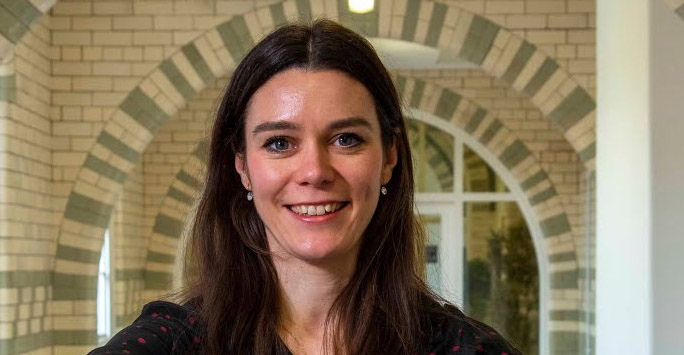
Clarissa is a Research Fellow in Health Services Research and talks about her research into dementia, including how projects have changed since the COVID-19 pandemic hit.
What is my research about?
My research looks at how we can enable people living with dementia to live independently and within their own homes for as long as possible. Dementia affects an estimated 850,000 people in the UK, with the number expected to rise to over 1 million by 2025. Dementia doesn’t only affect those who live with the condition. Family and friends who are providing unpaid care worth up to £13 billion per year are also significantly impacted by dementia.
Once a person receives a diagnosis of Alzheimer’s disease dementia, (the most common form), or a rare form, such as behavioural variant fronto-temporal dementia or Lewy Body dementia, people are often left without much guidance. There's often little knowledge about what types of care and support people can access. This lack of support can be enhanced by socio-economic factors. For example, where someone lives, how many years of education someone has, or someone’s ethnic background have all been linked to how people are accessing services.
Whilst there are great inequalities within the North West coast region alone, my research not only focuses on inequalities in the UK. I am also working with collaborators in Colombia and Uganda to explore how people with dementia living in rural regions are receiving dementia care and how COVID-19 public health restrictions are affecting the lives of older adults in Uganda. It is important to link up internationally and exchange knowledge, and to really understand how we can improve dementia care globally.
COVID-19 dementia research
In light of the COVID-19 pandemic, my research has temporarily shifted to focus on the effects of social support service closures on those affected by dementia. Considering the lockdown and measures of social distancing present, social support services such as day care centres, social activities in the community (i.e. singing and dancing groups), befriender services, or paid carers, have all been in some way affected. With these services having to shut down or reduce temporarily, this is likely to have a huge impact on the care that people are receiving.
Our study has been funded by the University’s COVID-19 Strategic Research Fund and we have just completed Study One. As part of that, we have spoken to 50 people with dementia and unpaid carers about their experiences of COVID-19-related social support service closures. Whilst busy analysing and writing up the findings, there is so much rich information coming out that we have enough data for several papers. It appears that COVID-19 has had an incredibly negative, indirect impact on the lives of people with dementia and their carers.
To complement this research, we are also running an online or telephone survey. We are interested in how these social support service closures are affecting the long-term wellbeing of those affected by dementia and older adults (aged 65+). We will ask people again after six and 12 weeks about how their wellbeing might have changed. So far, we’ve already had 600 people take part and within 48 hours of the survey going live, we had beaten our initial target of 150 participants!
Involving the public
My research only becomes meaningful by involving those who are affected by dementia. That’s why each project I'm involved in includes public advisors. To make sure my research is inclusive and has an impact, whilst also ensuring that not only academics, but also clinicians, service providers, and decision makers are linked up in the Liverpool City Region, I set up the Liverpool Dementia and Ageing Research Forum in 2019.
Every two months, I organise a free public seminar, where an academic or clinician shares their work, with plenty of time allocated for discussion and questions. At the last seminar in March 2020, shortly before lockdown, nearly 70 people including many affected by dementia, attended. Dr Rhys Davies from The Walton Centre NHS Foundation Trust was our guest speaker, leading a discussion about rare dementias. With COVID-19 having put a hold on everything temporarily, we're hoping to be back up and running later this year, so feel free to come along!
To find out more about Clarissa's work, visit her staff profile and follow her on Twitter.